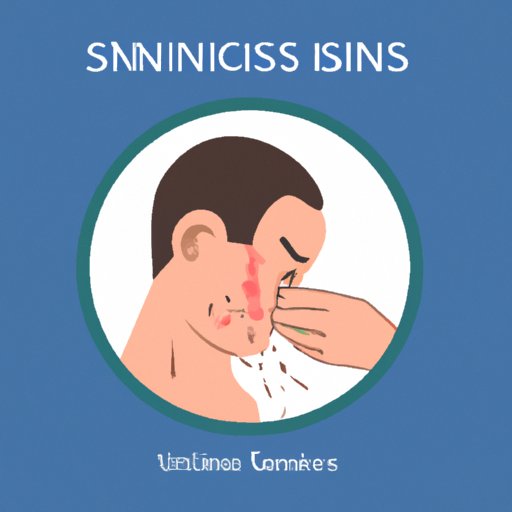
The Ultimate Guide to Knowing If You Have a Sinus Infection
Have you ever experienced that awful, stuffy feeling in your head or a nagging headache that just won’t go away? If so, you may have had a sinus infection. According to the Centers for Disease Control and Prevention (CDC), over 29 million Americans are diagnosed with sinus infections every year. Knowing if you have a sinus infection can be vital in managing symptoms and preventing complications. So, let’s dive into the ultimate guide to recognizing if you have a sinus infection and what you can do about it.
Symptoms of a Sinus Infection: How to Recognize and Treat Them
Sinus infections are usually the result of a viral or bacterial infection that causes your sinuses (the air-filled spaces behind your forehead, nose, cheekbones, and eyes) to become inflamed. Some common symptoms of a sinus infection include:
- Facial pain or pressure
- Nasal congestion
- Runny nose
- Headaches
- Sore throat
- Coughing
- Fever
If you have a sinus infection, there are several treatment options available, including antibiotics, decongestants, and nasal sprays. Home remedies such as staying hydrated, using humidifiers, and taking over-the-counter pain relievers can also help manage symptoms.
The Ultimate Guide to Diagnosing a Sinus Infection
Diagnosing a sinus infection can be tricky, since its symptoms can mimic those of other conditions such as a cold or allergies. If you suspect you have a sinus infection, the best thing to do is to visit your doctor. They will likely review your symptoms and medical history, and possibly perform physical evaluations such as a nasal endoscopy or imaging tests like a CT scan or MRI. These tests can help confirm the presence of a sinus infection and help rule out other conditions.
It’s important to note that there are some common myths surrounding the diagnosis of sinus infections. One such myth is that clear mucus means you don’t have an infection, while yellow or green mucus means you do. However, the color of your mucus doesn’t always indicate whether or not you have an infection. Instead, the duration, frequency, and severity of your symptoms are better indicators of your condition.
Sinus Infection 101: Symptoms, Causes, and Treatment Options
There are two types of sinus infections: acute and chronic. Acute sinus infections are short-term infections that typically last for two to three weeks. Chronic sinus infections, on the other hand, can last for more than 12 weeks and may recur frequently. Common causes of sinus infections include viruses, allergies, bacteria, and structural problems in the nasal passages.
Treatment options for sinus infections include antibiotics, antihistamines, decongestants, and nasal corticosteroid sprays. In some cases, your doctor may recommend surgical intervention to treat chronic sinusitis.
How to Tell if You Have a Sinus Infection and What to Do About It
If you’re unsure whether or not you have a sinus infection, there are a few things you can do to self-examine. You can try looking inside your nose using a small flashlight or standing in front of a mirror and checking for redness or swelling around your nostrils. Additionally, take note of your symptoms and their duration to discuss with your doctor.
It’s important to see your doctor if your symptoms worsen or persist for longer than ten days, especially if you have a high fever. Proper treatment and management of sinus infections can prevent complications such as recurrent infections or the spread of infection to other areas such as the eyes or brain.
Do You Think You Have a Sinus Infection? Here’s What You Need to Know.
In summary, recognizing the symptoms of a sinus infection, getting a proper diagnosis, and seeking proper treatment are essential in managing this condition. Don’t rely on the color of your mucus to determine whether or not you have a sinus infection. Instead, pay attention to the duration and severity of your symptoms and seek the advice of your doctor if you suspect you have an infection.
Most importantly, take care of your health and seek help when you need it. Whether it’s a sinus infection or something else, don’t ignore your symptoms and don’t hesitate to seek medical attention. Your health is the most important thing you have.
Conclusion
Sinus infections can be unpleasant, but knowing how to recognize the symptoms and what to do about them can help you manage the condition and prevent complications. Seek help from your doctor if you suspect you have a sinus infection or if your symptoms persist.




